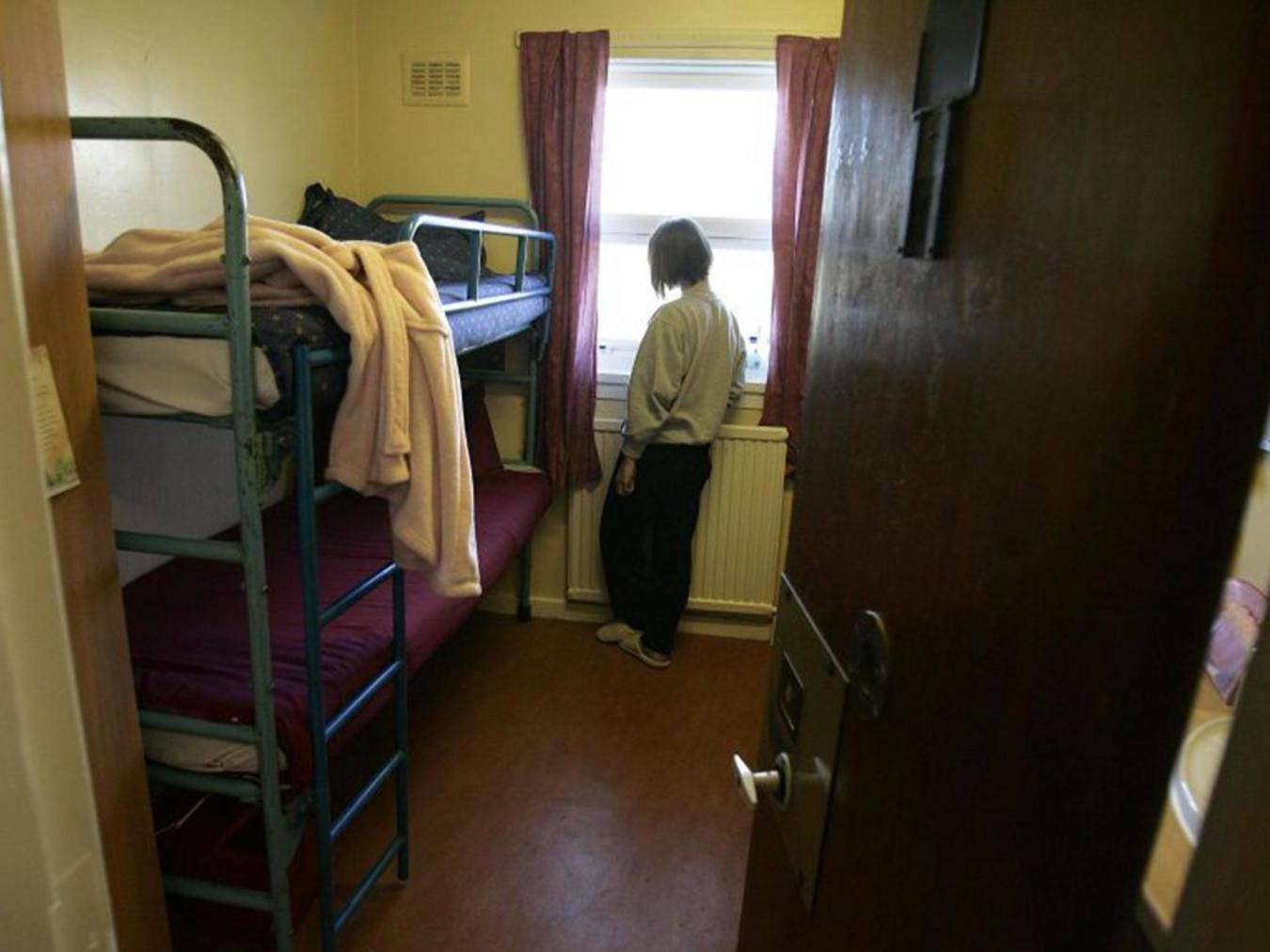More than half of female prisoners are victims of domestic violence, new research shows
Exclusive: Charity calls for urgent guidance on dealing with female offenders as it emerges many are victims of crimes much graver than those they have been convicted of

Women in prison in England and Wales are often victims of much more serious offences than the ones they have been convicted of, a charity has warned.
A report published today shows 57 per cent of female inmates have been victims of domestic violence, while 53 per cent have experienced emotional, physical or sexual abuse as a child.
The figures do not tell the whole story, according to by Prison Reform Trust.
Both figures, taken from Ministry of Justice data, are likely to be an underestimate because many women fear disclosing abuse
Previous research by charity Women in Prison shows 79 per cent of the women who use their services have experienced domestic violence or sexual abuse.
After conducting focus groups with women about their experience of committing offences in response to coercive and controlling behaviour from a partner, researchers identified strong links between women’s experience of domestic and sexual abuse and coercive relationships and their offending.
They warned that this can trap women in a “vicious cycle of victimisation and criminal activity”, often exacerbated by poverty, substance dependency or poor mental health, and having a severely detrimental impact on any dependent children.
Several women said that they had committed offences on many occasions and over prolonged periods of time in order to support a partner’s drug use – including by shoplifting, by selling drugs and by committing other undisclosed offences –saying they felt trapped in these unhealthy relationships.
The female inmates told researchers they felt the police were rarely sympathetic or helpful to them as victims of domestic abuse, and said they did not have confidence in the police to identify the primary aggressor and provide protection. A number reported having been repeatedly arrested by the police in incidents of domestic violence where they had not been the primary aggressor.
Previous research shows women’s offending is more likely than men’s to be prompted by their relationships or by financial concerns. Nearly half of women prisoners (48 per cent) questioned for the Surveying Prisoner Crime Reduction (SPCR) longitudinal survey reported having committed offences to support someone else’s drug use, compared with 22 per cent of male prisoners.
Jenny Earle, director of the Prison Reform Trust’s programme to reduce women’s imprisonment, urged that it was time for “concerted action” to help break the cycle of victimisation and offending.
“Our recommendations have been developed in consultation with women who have been personally driven to commit crimes by violent partners, and the services that support them,” she said.
“If implemented we would see both a reduction in the incidence of domestic abuse and fewer women unnecessarily imprisoned.”
The Prison Reform Trust insists specific guidance is required in order to ensure that criminal justice agencies, as well as police officers, respond appropriately to women offenders who are themselves victims or survivors of domestic abuse.
The charity adds that there is a lack of explicit guidance within the legal system on the appropriate response to women suspected of committing a range of offences who are victims themselves.
While new legislation recognises “coercion” as a mitigating factor for some offences, the charity says that the sentencing process needs to be better informed about domestic and sexual abuse as significant drivers to women’s offending.
It emerged last month that the law against “coercive and controlling behaviour” has led to no more than 20 charges by half of England’s police forces in the two years since it was enacted.
The report concludes: “The Home Office and Ministry of Justice should work closely together, and in consultation with the Welsh government, to ensure that the forthcoming women offenders strategy addresses the extent to which domestic and sexual violence and abuse underpin the life experience of many women offenders, and include clear expectations on criminal justice agencies to improve their responses to women.
“Police, prosecuting authorities, probation services and the courts should adopt the practice of appropriate, routine inquiry into women’s histories of domestic and sexual violence at each stage of the criminal justice process to ensure informed decision-making and proportionate responses.”
Dawn Butler MP, Labour’s Shadow Secretary of State for Women and Equalities, responded to the report saying: “As a magistrate I saw first-hand just how brave women had to be to engage in the criminal justice system. I was frustrated at the lack of support we could offer and as the probation service was stripped back that support became almost non-existent for female focused services. To break the cycle of abuse and offending takes emotional intelligence and a commitment from the Government.”
A Government spokesperson said: “We are committed to doing all we can to address issues around female offending so we can deliver more effective rehabilitation and better respond to the complex needs of offenders who have been victims of domestic abuse.
“We will shortly be setting out our strategy for female offenders, to improve outcomes for women in the community and custody. Amongst other things, this important piece of work will look at how we can improve the services that are available in the community so we can cut crime.
“Tackling domestic abuse is key priority for this Government and we will also be publishing a landmark draft Domestic Violence and Abuse Bill to protect and support victims, recognise the life-long impact these crimes have on children, and ensure agencies respond effectively.”
Subscribe to Independent Premium to bookmark this article
Want to bookmark your favourite articles and stories to read or reference later? Start your Independent Premium subscription today.

Join our commenting forum
Join thought-provoking conversations, follow other Independent readers and see their replies